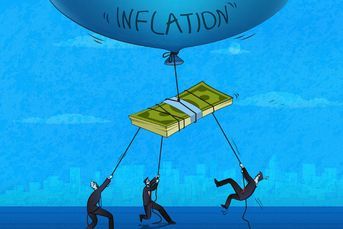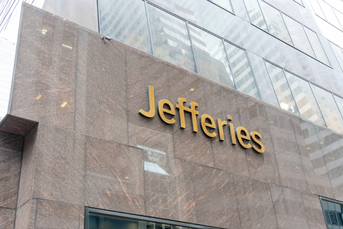WaMu excluded from ‘too clubby to fail’ group, says ex-CEO
Kerry Killinger said the thrift became the largest bank failure in U.S. history in part because it was excluded from a group of financial institutions favored by policy makers.
Kerry Killinger, the former chief executive officer of Washington Mutual Inc., said his company became the largest bank failure in U.S. history in part because it was excluded from a group of financial institutions favored by U.S. policy makers.
Washington Mutual wasn’t protected from short sellers and the U.S. Treasury Department excluded the company from information sessions it held with competitors, Killinger said today in written testimony for the Senate Permanent Subcommittee on Investigations. The panel is holding the first in a series of hearings in Washington on the collapse of the financial system.
“For those that were part of the inner circle and were ‘too clubby to fail,’ the benefits were obvious,” Killinger, 60, said. “For those outside the club, the penalty was severe.”
Washington Mutual, once the nation’s biggest savings and loan, reported losses totaling $6.3 billion in its final three quarters as a public company. Federal regulators seized the bank in September 2008 and sold it to JPMorgan Chase & Co. for $1.9 billion. It reached a proposed bankruptcy settlement in March.
The thrift’s lending practices were criticized as overly aggressive at the hearing by former Chief Risk officers James Vanasek and Ronald Cathcart. Both blamed Killinger for failing to institute stricter controls on lending.
Vanasek said he told a company management conference in 2004 that the firm’s “Power of Yes” advertising slogan “needed to be countered by the wisdom of no.” The statement was “exceedingly risky from a career perspective,” said Vanasek, who left the company in 2005.
Cathcart joined the company in 2006 and was terminated by Killinger in 2008 after he told a Washington Mutual director that his duties were marginalized, according to his written testimony. Regulators with the Office of Thrift Supervision “were much more light-handed than I was used to” during his previous tenure at large Canadian banks, he testified today.
Killinger was CEO for 18 years before the company’s collapse.
“The actions taken by policy makers reflect a vision of a banking industry dominated by large Wall Street banks,” Killinger said in his first public comments since the bank was taken over. “I fear consumers will ultimately pay the price of this vision through less competition, higher fees and lower interest rates on their deposits.”
The parent company of Washington Mutual Bank used the type of financial engineering that turned some lenders into “securitization factories” that stoked the subprime bubble, Senator Carl Levin, a Michigan Democrat, said. Levin’s panel is presenting details of Washington Mutual’s collapse as a case study in what went wrong in the housing-finance market.
“This hearing is less about WaMu’s failure than it is about a pattern of selling toxic mortgages into our financial system, poisoning the secondary market,” Levin said as he opened the hearing this morning.
Using a pay policy that rewarded employees for originating loans regardless of their quality, Washington Mutual “flooded the market with shoddy loans that went bad,” Levin said. “It built a conveyor belt to dump toxic mortgage assets into the financial system like a polluter dumping toxic substances into the river.”
Killinger said that, as CEO, “I accept responsibility for our performance.”
He said Washington Mutual shouldn’t have been seized and sold for a “bargain price,” and said he is “deeply saddened” by what happened.
The company was the nation’s largest thrift, with $300 billion in assets, $188 billion in deposits and 43,000 employees.
Learn more about reprints and licensing for this article.








